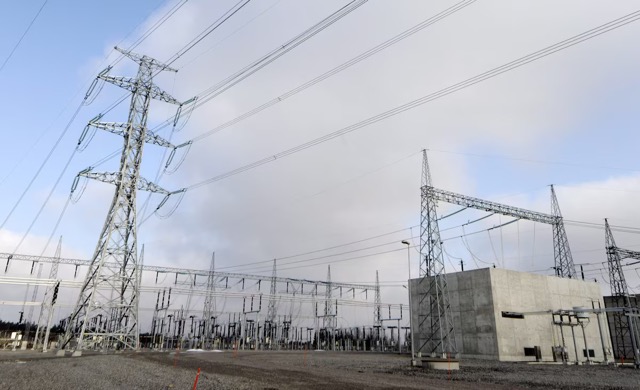China’s stock markets and currency experienced a sharp decline on Wednesday, reflecting investor concerns about heightened trade tensions and economic challenges under a upcoming second term for former US President Donald Trump, Reuters reports.
The onshore yuan saw its steepest daily drop since June 2023, while Hong Kong’s markets also dropped significantly, with technology stocks leading the decline.
As of the market close, Trump had claimed victory over Democrat Kamala Harris in the closely contested US presidential race. The dollar strengthened, and US stock futures surged following the Republican Party’s projected win of a majority in the US Senate. However, it remains unclear which party will control the US House of Representatives.
The Chinese blue-chip CSI 300 Index fell 0.5%, while Hong Kong’s benchmark Hang Seng Index dropped 2.3%. The Hang Seng China Enterprises Index, which tracks Chinese companies listed in Hong Kong, lost 2.6%. Notably, shares of major Chinese tech firms were among the hardest hit, with JD.com and Alibaba both seeing declines of around 4%.
Trump’s policies, particularly his stance on China, are expected to have a significant impact on China’s economy and capital markets. Throughout his campaign, Trump pledged to impose tariffs of 60% or higher on Chinese goods as part of his efforts to boost US manufacturing. As a result, investors are concerned about the potential for renewed trade conflict, which could further strain economic relations between the two largest economies in the world.
“Markets are currently focused on the possibility of tariffs, as this is a policy lever that can be directly enacted through a presidential executive order,” said Rong Ren Goh, a portfolio manager at Eastspring Investments.
He added that in addition to tariffs, Trump’s administration could impose financial sanctions or further restrict China’s access to critical technologies, including those necessary for artificial intelligence development.
This uncertainty has led foreign investors to adopt a more cautious approach to China-related assets, with many likely hedging their exposure to the yuan and Chinese equities.
Despite the market’s negative reaction, China’s equity market has been recovering in recent months. Since late September, the CSI 300 index has gained more than 20%, boosted by Beijing’s stimulus measures aimed at addressing weak consumption and a downturn in the real estate sector. However, a Trump victory could threaten this rally, especially in sectors such as technology, defense, and exports, which are likely to be targeted by his policies.
While both major US political parties have shown a tough stance toward China, Trump’s policies are seen as more unpredictable, leading to further market uncertainty.
“Although both candidates are probably hawkish toward China, Trump is still less predictable in terms of policy, so the prospect of a Trump win could still drag sentiment a bit,” said Kenny Ng, a strategist at China Everbright Securities International in Hong Kong.
In contrast to the broader market reaction, onshore investors in China appear more focused on domestic economic developments. The Standing Committee of China’s National People’s Congress (NPC) is meeting through Nov. 8, and investors are awaiting potential stimulus measures from the government that could have a more immediate impact on the markets.
On the currency front, the offshore yuan fell more than 1% against the US dollar, reaching its weakest point since mid-August. The onshore yuan also weakened by over 0.8%, with reports suggesting that China’s major state-owned banks were actively intervening in the foreign exchange market to prevent the yuan from weakening too rapidly.
Trump’s proposed tariffs and tax policies are viewed as inflationary, which could lead to higher US interest rates and put further pressure on the currencies of China and other trade partners. During Trump’s first term, the yuan weakened by about 5% against the dollar in response to initial rounds of tariffs imposed on Chinese goods, and it fell by an additional 1.5% the following year as trade tensions escalated.









